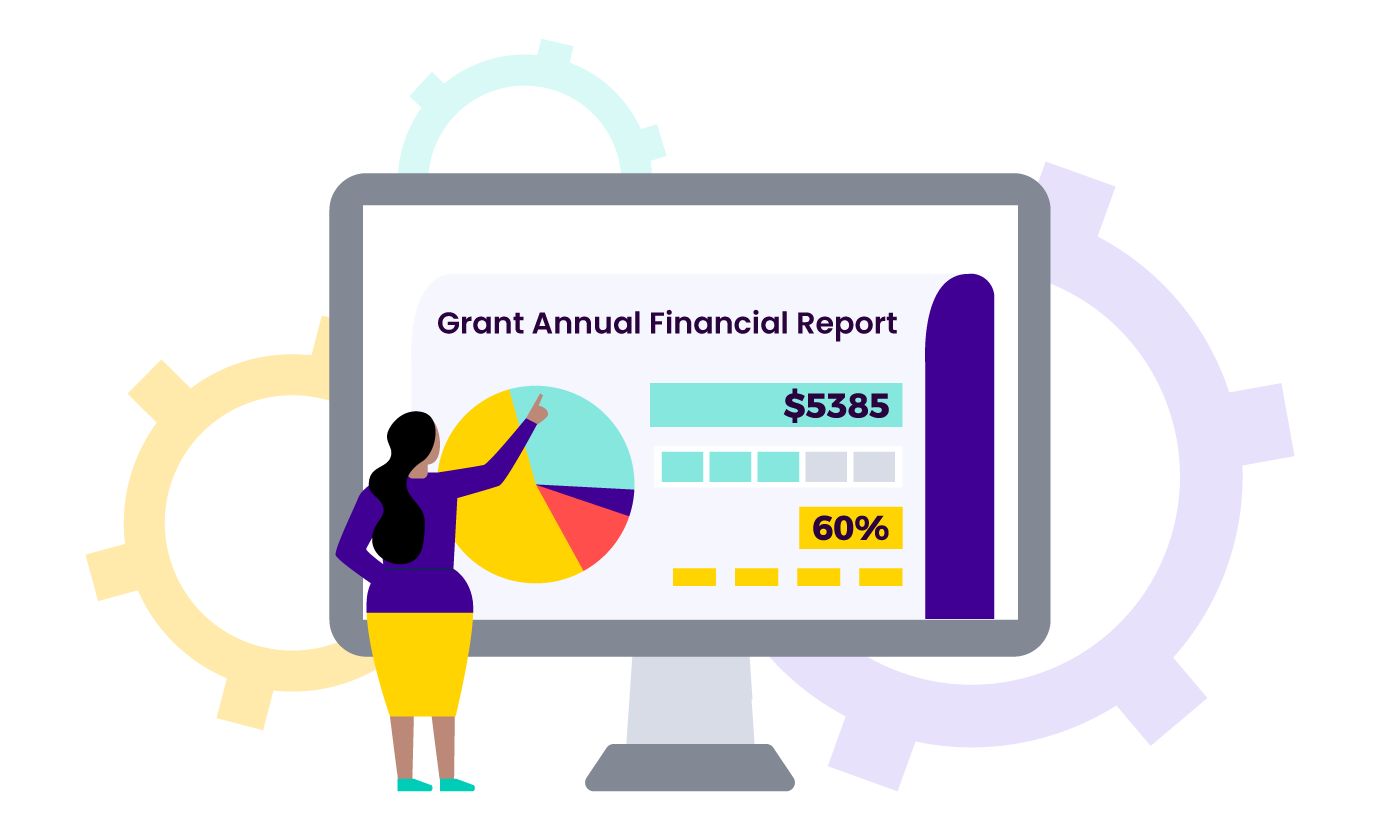We’ve partnered with the author to present a free webinar on how to establish a reserve fund at your organization. Join us on October 15 to learn more – more information and registration here.
Many nonprofit organizations rely on grants to fund their operations and programs. But did you know that grants are also a great way to receive contributions to your reserve funds?
While grantmakers may require several types of reports over the course of the grant period, proper financial reporting is both an important final step in the grantmaking process and your chance to demonstrate the kind of stewardship that solidifies funder relations.
The stronger your grantmaker relationship, the easier it will be for your organization to secure future funding.
So here are 3 tips to improve your grant financial reporting.
1. Take advantage of technology to track your expenses
Most funders will want to see how your actual spending compares with your original grant budget. Accurately tracking your expenses is essential for staying accountable and providing the information that your grantmaker needs.
While some organizations default to Excel spreadsheets to do their bookkeeping, manual expense tracking is both time-consuming and prone to errors. Instead, consider using cloud accounting tools like Receipt Bank.
If your staff are the ones using grant funds, Receipt Bank will allow them to conveniently track their expenses on the go.
- They can photograph and code their receipts and invoices using Receipt Bank’s mobile app
- Your finance team can quickly spot any erroneous coding when reviewing the transactions
- Your expenses will end up properly coded to the right grant and account
Because Receipt Bank integrates with cloud accounting software like QuickBooks Online and Xero, grant expenses can easily be exported to your accounting software. You end up with a digital copy of all your receipts – and a clear paper trail in the event of an audit.
2. Always create reports using the data in your accounting software
It’s important to only use information from your accounting software to create the financial report for your funder. Since many funders include a clause in their grant agreements reserving the right to audit, you’ll want to make sure:
- You’re managing your grant spending closely using your accounting software
- Your numbers are always accurate and up to date
- The total grant expenses in your accounting software match the total expenses on your funder report
To save time during the reporting process, consider mapping your chart of accounts to both your grant budget and your funder’s reporting template in advance.
That way, your expenses will be coded to the correct account categories throughout the grant reporting period, and it will be easy to pull the data you need from your accounting software and transfer it to your report.
3. Make sure your narrative aligns with your financial report
The narrative report – another important element of the grant reporting process – serves as an outline of the program or activity funded by your grant. A big part of demonstrating good stewardship is ensuring that the time period and events outlined in your narrative align with your financial report.
If, for example, your narrative describes five specific program staff, you should check to make sure that their salary expenses (in relation to the grant) are reflected in your financial report.
The changing economic landscape means many not-for-profit organizations are revisiting their need for and use of reserve funds to maintain operational continuity and resilience.
While certain funders may have rules preventing grantees from maintaining a reserve fund, grant reporting is a great way to educate your funders about their importance and show why grant-supported organizations should be permitted to have one.
If you’re planning to establish a reserve fund for your organization, we’re partnering with Charity Village for a free webinar on October 15, 2020 designed to Demystify Reserve Funds. We’ll be discussing the different types of reserve funds and sharing best practices for establishing and managing them.
Click here for more information about the webinar and registration.
Alex Oulton, CPA, CA is the Director of Service Delivery at Enkel. For over 15 years, Alex has been active in assurance, advisory, and tax compliance with extensive experience serving not-for-profit organizations, and is currently on the board of directors for a housing co-operative.







